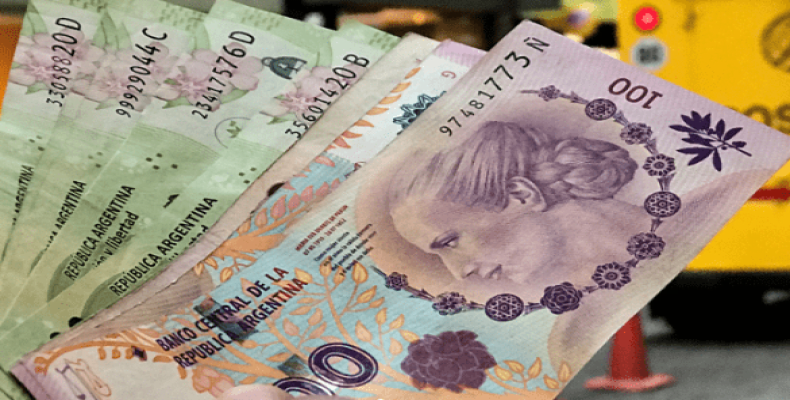Buenos Aires, August 12 (RHC)-- Argentina’s currency, the Peso, has lost 30 percent of its value and the country’s stock market has fallen by 10 percent, following the huge defeat of neo-liberal President Mauricio Macri at the primary elections on Sunday. The collapse of the Peso is likely to push inflation even further as investors and international banks fear that Argentina’s progressives will win presidential elections and end Macri’s neo-liberal reforms.
Under former leftist President Cristina Kirchner, one dollar was valued at around 8-9 Pesos. Today, after almost 4 years of neo-liberal policies, inflation and devaluation, it now takes 65 Pesos to buy just on U.S. dollar, with a huge spike occurring on Monday, following the victory of the progressive ‘Front for All’ party (of which Kirchner is the Vice presidential candidate) in the country’s primary elections on Sunday.
Presidential candidate Alberto Fernandez of the ‘Front for All’ won with a landslide, gaining 47 percent of the vote, compared to 32 percent for the neoliberal incumbent Macri. The elections were to determine who can qualify for the presidential elections in October, though these results give an indication of the victory for the progressives, which has, in turn, worried bankers that Macri’s free-market reforms will be reversed.
Conservative media outlets warned before the Sunday elections that investors would be displeased at a progressive victory. Nevertheless, voters delivered a resounding defeat to President Macri, punishing the incumbent for four years of economic crisis, hyperinflation and a multibillion-dollar loan from the International Monetary Fund.
Commenting on the reaction of the markets to his victory, Fernandez said that Macri was to blame for such mistrust by the economic establishment. “Markets react badly when they realize they were scammed. We are living a fictitious economy and the government is not giving answers.”
The fall of the Peso, nevertheless, will most likely damage the investors' preferred candidate, Macri. The devaluation will lead to greater inflation ahead of the official presidential elections on October 27th, which will see voters sticking to their plan of changing their country's leadership.


